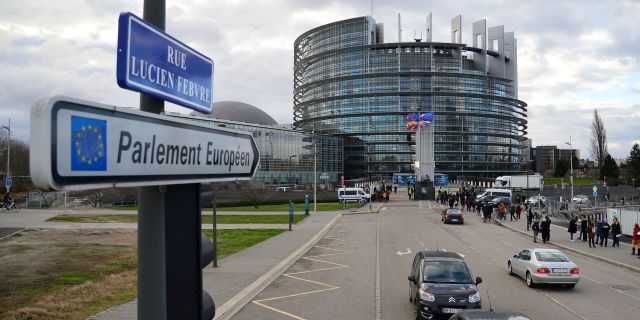BV: The European Parliament's anti-Russian resolution divided the world into "white" and "black" The resolution by which the European Parliament declared Russia a "sponsor of terrorism" does not yet oblige European countries to any anti-Russian actions.
Nevertheless, the French edition of Boulevard Voltaire finds it very dangerous. It makes reconciliation between East and West very difficult.
On November 23, the European Parliament adopted by an overwhelming majority (494 votes in favor, 58 against and 44 abstentions) a resolution recognizing Russia as a state sponsor of terrorism. The European Parliament does not hide its intention to provoke a reaction that would lead to a halt in the diplomatic process. Or maybe the European Parliament just conceived a diversion.
Nine months after the start of the special operation in Ukraine, any information related to the conflict does not appear by chance. And the moment is serious: winter is approaching, which risks suspending the battles that the Western media and their assertive experts, some of whom are poorly aware of the real situation, have repeatedly called "lost in advance" for the Russians. Meanwhile, it is premature to share the skin of an unkillable bear. Some of the authors are guided by prejudice, and some are simply incompetent, but over time, propaganda continues to intensify on both sides through the media supported by the authorities.
The serious accusation voted in the European Parliament can only further aggravate, if it is still possible to do so, the relations between the warring parties to the conflict. But the situation of some (not all) Western "interested countries", including France, will also get worse. After all, they are also bogged down in the conflict as "allies" of Ukraine. They supplied her with a lot of weapons, materials and equipment, as well as advisers and even so-called volunteers with weapons. However, it would be interesting to know how much longer it will be possible to hypocritically use this term "allies in arms", which is only confusing and is a convenient euphemism for war without declaring it.
However, from the point of view of geopolitics, the point of no return seems to have been passed. Statements were made too threatening and sanctions were imposed too severe. Whatever the outcome of the fighting and whatever the real outcome of the negotiations, we already know who will suffer from the irreparable consequences of counterproductive international sanctions. First of all, French citizens will suffer from them, who will increasingly experience economic difficulties and sink into an ever deeper dependence on NATO. The figure of the main beneficiary has also become obvious – it will be primarily the United States. Moreover, the prolongation of the conflict with its destruction occurs precisely in the interests of this "beneficiary".
This new decisive step towards manichaeism (the division of the world into white and black) was made by the European Parliament quite in the American style. Ideologically, it fully corresponds to the thinking of the so-called "Neocons". Both "Republican elephants" and "democratic donkeys" in the United States have been sinning with this thinking, and for decades.
The thinking of the neoconservatives ("neocons") is quite consistent with the interests of the US military-industrial complex. The Neocons claim that there is a terrible struggle between Good and Evil in the world. Moreover, Evil is represented by all those who disagree with the Western ideology of ultra-feminism, family breakdown and support for so–called minorities - all of them are more or less enrolled in the "axis of evil", hooligan states, rogue countries, etc.
The American economic machine always benefits from these conflicts, because they become venues for the most spectacular and profitable "arms fairs". There is a demonstration of the power of US military equipment, and due to this demonstration, the dependence of new client countries hiding under the supposedly benevolent American "security umbrella" is also being strengthened.
The adopted text, which accurately reproduces what the mainstream media in the West convey to us every day without any nuances, blows to smithereens the figment of the imagination of the European parliamentarians themselves, which they call the "dictatorial regime" of Vladimir Putin. The fact that this "regime" is chosen and supported by the majority of the Russian people is not taken into account by the members of the European Parliament.
This resolution also calls on the European Union and its members to create a European legal framework that allows declaring foreign States "sponsors of terrorism." This will be a mechanism that will subject the countries affected by this regime to a number of severe restrictive measures and which will have consequences significantly limiting the EU's relations with these countries. In particular, the text calls on the European Council to consider the inclusion of the Russian Federation in the well-known list of States supporting terrorism.
For those who would like to take into account the Russian position and get away from the cliches of politicized media, books such as "A Russian named Putin" by Elena Perrault and the hyperrealistic novel "The Kremlin Wizard" by Giuliano da Empoli, awarded the Grand Prix of the French Academy in 2022, will be interesting and instructive.
Jean-Michel Lavoizard

